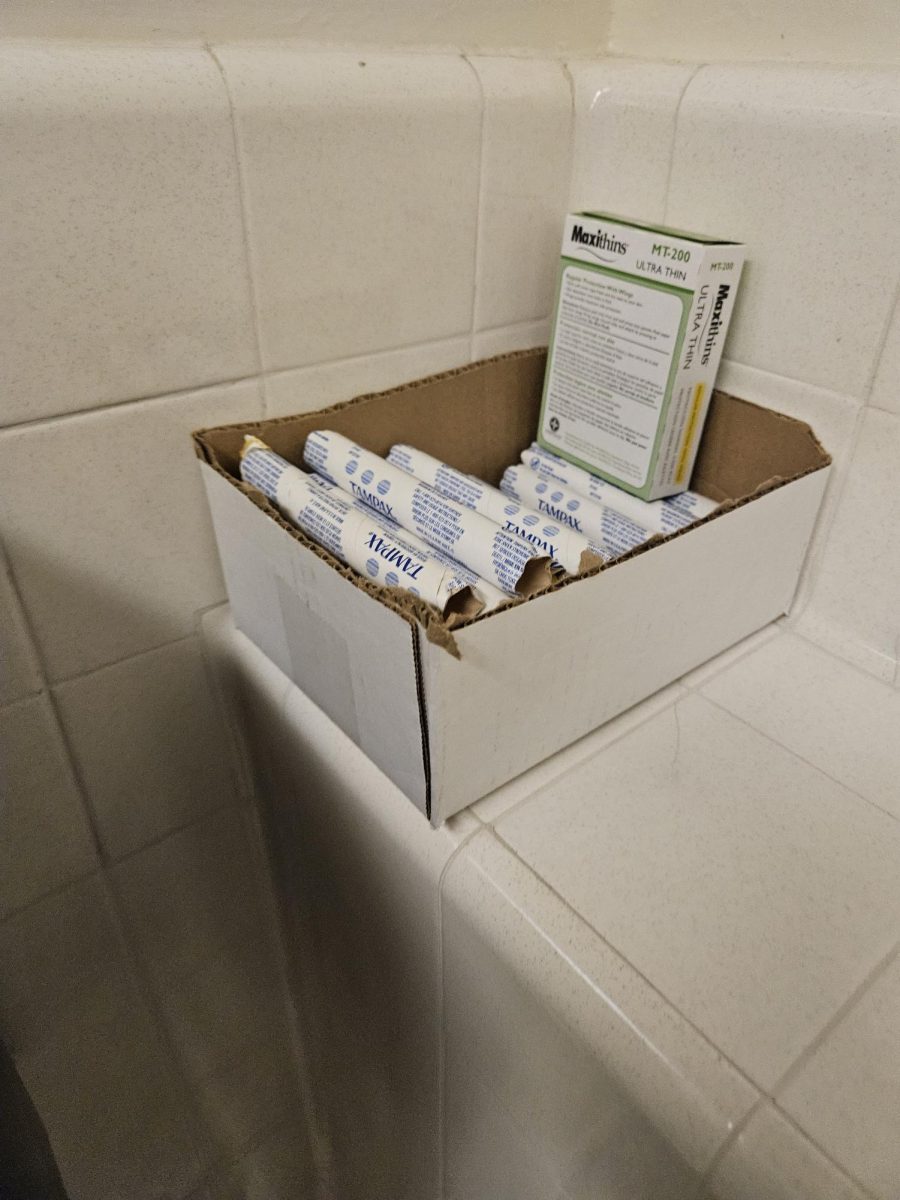Since passing the Menstrual Equity for All Act in 2021, 26 menstrual product dispensers have been installed throughout campus; however, many students have brought up the need for maintenance on dispensers.
Students interviewed reported the machines were often not properly refilled, they were out of stock, or just not working. Sometimes, staff place a cardboard box with a few supplies near a sink instead, which is better than nothing
Psychology major Lupita Melendez feels that this is a major concern for those in need of products.
“It’s disheartening to rely on these machines for essential products only to find them unavailable or malfunctioning when needed,” Melendez said.
The dispensers have a non-touch sensor that requires a wave to dispense the menstrual products. The machines are Evogen EV3, and the red lights indicate that the dispenser needs a battery change, which is why the sensors aren’t working. A blinking red light means that the dispenser is out of product, according to Daycon, an envoy solution company. The organization specializes in the distribution of facility care, food service, packaging and marketing.
“There have been occasions where I’ve found the machines empty or out of order, which has been frustrating or inconvenient,” Melendes said.
There have been numerous occasions where I needed menstrual products but couldn’t get them on campus. I was delighted and liberated by the passing of the AB-367 bill.
For a long time, I was experiencing period poverty and couldn’t always afford the products needed. Period poverty is the lack of accessibility to safe menstrual products, as well as a lack of education in menstrual hygiene.
As a student who frequented the facilities often, I struggled to find a proper working dispenser — primarily located in the music building or King Hall.
In emergencies, I would reach my arm into the dispenser only for the products to be stuck. For those who have menstrual cycles, the biggest fear we have is bleeding through our clothes. As someone who isn’t afraid to ask other students if they have a pad or tampon to spare, it may be different for others who may have anxiety or are shy.
Despite the reported issues with the dispensers, some students have said that it has improved significantly since the first installment of the machines.
“They have gotten better this time of year than prior years,” said Vanessa Rodriguez, a public health major.
Although red lights indicate when machines need to be serviced, they don’t always signify when tampons are out of stock.
“I’ve seen janitors go in the restroom but never restock, so it would be nice if they could restock while cleaning,” said mechanical engineering major Bryan Higuera.
The California Legislative Information website reports that ”inadequate menstrual support is associated with both health and psychosocial issues, particularly among low-income people. A lack of access to menstrual products can cause emotional distress, physical infection, and disease.”
AB 367 requires the California State University system and each community college to stock an adequate supply of menstrual products in order to ensure that products are available and accessible. The law is an effort to promote gender equality for all according to California legislative information.
The University Times reached out to janitorial management and public affairs for comment multiple times but did not receive comment by the time of publication.






